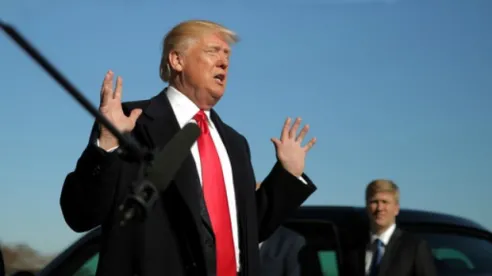Amidst concerns that tech companies possess too much power to shape digital communications, in May 2020 - just days after Twitter fact-checked some of his tweets - President Trump signed an executive order that could limit legal protections afforded to social media platforms.
In short, the order directs the Federal Trade Commission to review potential cases of anti-conservative bias on behalf of social media platforms under its Section 5 authority to investigate and take action against unfair or deceptive acts or practices. Importantly, the order also directs the Commerce Department to petition the Federal Communications Commission to reexamine the scope of Section 230 of the Communications Decency Act.
That CDA provides online platform providers with immunity based on their users’ content or their content moderation decisions.
The order directs the initiation of an FCC rulemaking proceeding to review the “good faith” content modification and removal element in the CDA. It promises to share complaints of “incidents of online censorship” to the Department of Justice and the FTC.
The order further directs executive agencies to assess whether “any online platforms are problematic vehicles for government speech due to viewpoint discrimination, deception to consumers, or other bad practices,” and instructs the attorney general to propose legislation “useful to promote the policy objectives of this order."
While the assault upon online speech and social media companies (i.e., intermediaries) appear rather clear to some, the legal justification and practical legal impact of the order is muddy, at best. For example, the FTC is intended to be an independent agency. So, while the FTC might be able to investigate and enforce unfair or deceptive acts if a platform definitively represents that it is neutral, but instead facilitates a political bias, it is highly unlikely that the FTC is terribly motivated to get involved.
Query whether the FTC even possesses the authority to enforce Section 230 of the Communications Decency Act under its FTC Act Section 5 authority, or whether the FCC possesses rulemaking authority pursuant to the CDA.
Regardless of whether the executive order is legally sound, threats to CDA Section 230’s immunity protections may impact relatively smaller platforms that will not be able to afford to fight legal battles over whether content modification or removal was in “good faith.”
On June 2, 2020, the Center for Democracy & Technology filed a lawsuit in the U.S. District Court for the District of Columbia, requesting that the court declare the executive order unlawful and a violation of the First Amendment rights. The CDT argues that the executive order is merely an attempt to reduce the scope of the Section 230’s safe harbor in order to punish undesirable speech.
To some, the order appears aimed to punish social media companies for the manner in which they police content. To President Trump, the order is in furtherance of the exploration of regulatory and legislative solutions to protect free speech.




 />i
/>i
